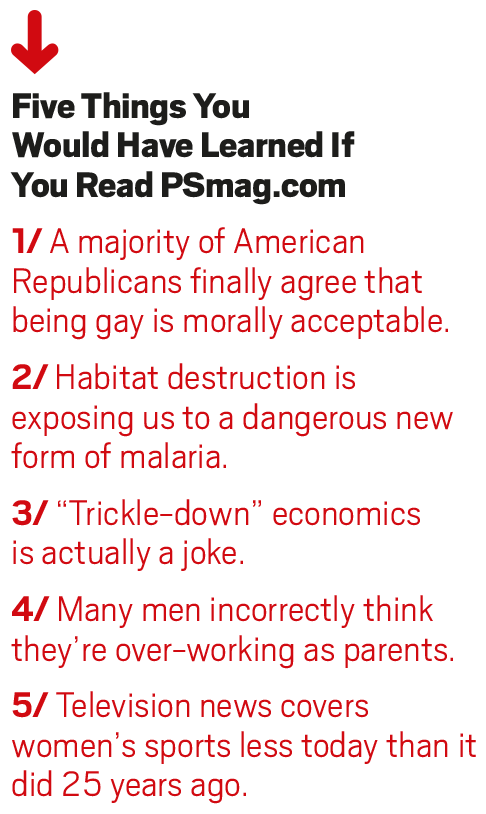What worries or excites you about the future of work and workers? What will be the most consequential changes in the workplace, and what anxieties and possibilities will they produce?
Pacific Standard, in collaboration with the Center for Advanced Study in the Behavioral Sciences at Stanford University, has been asking these questions of business and union leaders, social scientists, technology visionaries, and journalists around the world for a special project. Over the past few months, we’ve collected dozens of responses. You can find the first batch now at PSmag.com, where we’ve developed a special commenting system that allows you to weigh in with your own answers to the questions posed above, and to interact directly with our blue-ribbon panel of contributors.
Visit PSmag.com/work now to enjoy:
- Former presidential advisor to Bill Clinton Maria Echaveste on three ways to protect the middle class.
- Washington Post columnist Harold Meyerson on the opportunity for workers to promote a range of new public policies through innovative campaigns.
- Katherine Isbister, professor of computational media at the University of California–Santa Cruz, on making technology easier on our minds and bodies.
- Dean Baker on why we shouldn’t fault robots for taking our jobs. Instead, the co-founder of the Center for Economic and Policy Research argues, we should blame the political failure to alter labor laws to protect workers as new technologies proliferate.
- Dorothy Cobble on how most Americans work too much and are paid too little. Reversing these trends, the professor and author of Feminism Unfinished writes, is the most important thing we can do to improve the lives of workers and their families today.
- Natasha Iskander on whether the kafala system of indentured worker contracts in Qatar is our future, rather than a vestige of some more brutal time.
- Sebastian Thrun on how, because machines can learn faster than people, it’s just a matter of time before we’ll be outranked. The people who thrive, the Udacity CEO argues, will be the ones who know how to exploit artificial intelligence to gain superhuman capabilities.
- CASBS director Margaret Levi on how the future of post-industrial societies is casual labor, part-time and seasonal employment, jobs without benefits or rights, and workers without a voice.

But this is just the beginning. Questions as far-reaching as the ones we proposed call for a deep and detailed discussion. We’ll be continuing the conversation online, adding new columns every single weekday in September and October.
And pick up a copy of the next issue of Pacific Standard, in which we’ll summarize some of the most thought-provoking ideas from our ambitious special project and apply the strict framework you’ve come to expect from us: a close and careful look at research that matters, combined with narrative and investigative reporting on society’s biggest problems—both established and emerging.

For more from Pacific Standard, and to support our work, sign up for our free email newsletter and subscribe to our print magazine, where this piece originally appeared. Digital editions are available in the App Store and on Zinio and other platforms.





